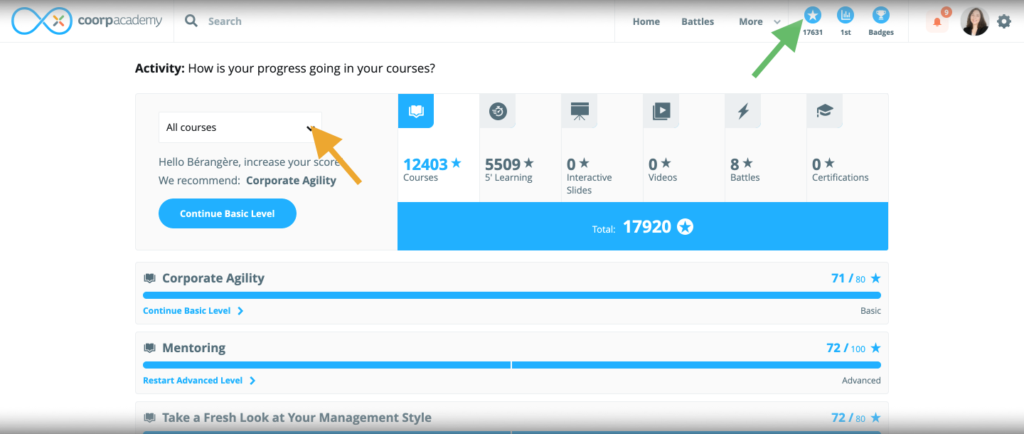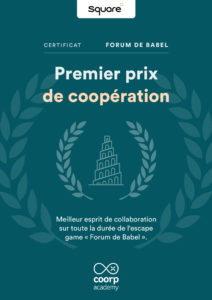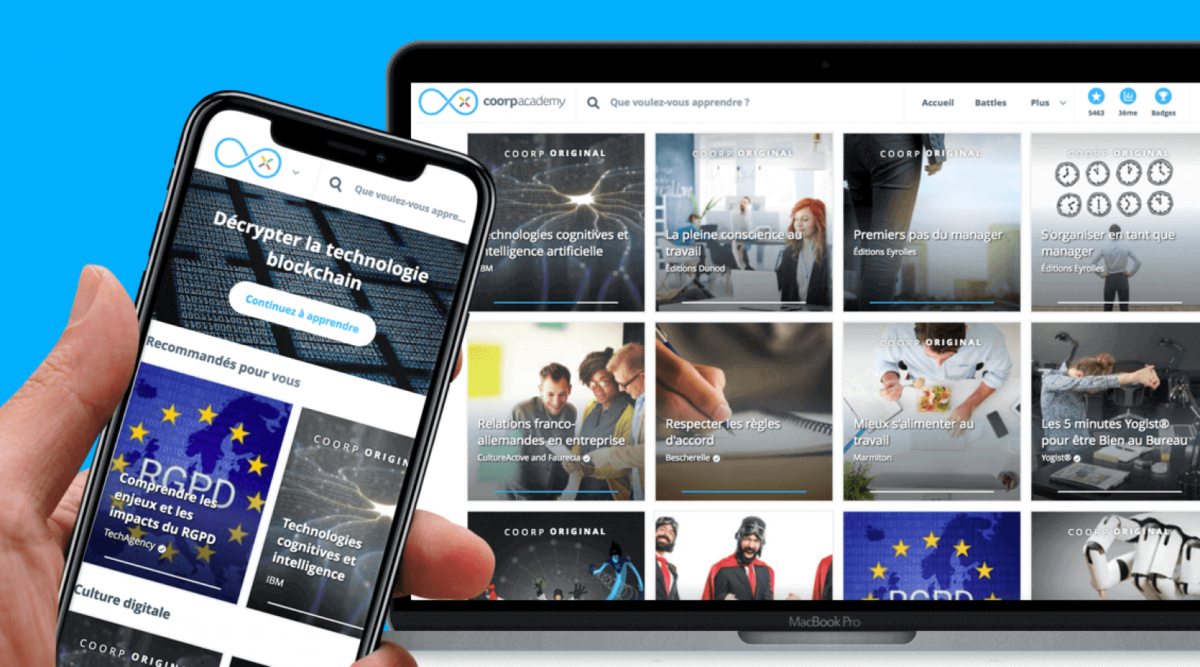Eye to eye, in all honesty, and frankly, arguing…it’s quite an art! Not yet convinced?
That’s normal, because before trying to convince anyone, it’s better to understand how a reasoning is built to get your ideas across, or to refute those that are presented to you. Some people still bite their fingers off…
Based on logic, the latest course by Luc de Brabandere and Anne Mikolajczak is designed to help you work on your own arguments, but also to identify the flaws in your interlocutor’s arguments in order to better counter them.
Luc de Brabandere and Anne Mikolajczak have been working together for over 35 years. With very different backgrounds, one an engineer, a business philosopher and now a Fellow at the Boston Consulting Group, the other a philologist, they have been running seminars together on creativity in business and introduction to philosophy. These experiences have inspired three courses at Coorpacademy: the first on cognitive biases, the second on creativity methods, and the latest, which has just been published, on the art of argumentation. Anne Mikolajczak answered our questions on this occasion to enlighten us on the importance of argumentation.
Q. What is an argument? Is it knowing how to reason, convince, or manipulate?
The Belgian philosopher, Chaïm Perelman, a world leader in this field, defines argumentation as “a discursive technique that makes it possible to provoke or increase an audience’s support for the theses being presented for its approval”.
In other words, arguing means reasoning and convincing.
The starting point for an argument is a disagreement between two different positions. It is an attempt by both parties to impose their point of view. There are two situations. In the first, the argument is solid: the concepts used are clear and useful, the premises are true and the logical structure is correct. In the second, the point of the argument is to trap the person, and it is deliberately fabricated, manipulated and distorted. The malicious speaker can play on words, articulate false premises and use logic structures that give the appearance of valid reasoning or use arguments that have nothing to do with reasoning, such as ad hominem attacks for example.
Q. Why offer this course on a professional digital learning platform? Or more precisely, how is argumentation a skill that needs to be developed in a company in 2021?
Both in business and outside of it, no matter how good our ideas and judgements are, one day our ideas will be confronted by people with different ideas. We will then need to be able to communicate well and also be able to listen, explain ourselves and understand the other person’s point of view.
And sometimes we have to contend with someone acting in bad faith.
What can logic still be used for when faced with a person who is willing to do anything to have the last word?
With the Internet, sophists now have a massive weapon of persuasion, and we need to further develop our ability to argue and decode the arguments of others.
Q. Can you be a “victim” of an argument? Are there ways to defend oneself against arguments?
You can of course fall victim to arguments when they have been deliberately distorted to distract you or mislead you.
So, how can we position ourselves, defend ourselves and react to false arguments? Aside from maybe lawyers or politicians, we are not professionals in debate or discourse. Systematic mistrust or the practice of irony are not second nature to us. The answer lies here: we must use “critical thinking” intensively. The goal is not to be certain but rather to uncover ploys and protect oneself from toxic ideas.
For example, there is a common fallacy called a false dilemma which often consists of presenting an alternative as the sole solution to a problem, while in reality there are many possible answers.
“If you are not with us, you are against us.”
No, we don’t have to be either with you or against you. We can disagree on some points while agreeing on others.
 And why not take inspiration from Arthur Schopenhauer’s The Art of Always Being Right? In it, he describes 38 strategies to defend oneself against a person and even attack them.
And why not take inspiration from Arthur Schopenhauer’s The Art of Always Being Right? In it, he describes 38 strategies to defend oneself against a person and even attack them.
Q. Do you have a recent story to tell us about the impact of the art of
arguing in a company context?
Companies’ success depends on their ability to convince their customers. They are helped to do so by advertising agencies. But sometimes they are faced with other types of people. Recently, Alstom and Siemens were denied the right to merge by the European Commission. Their arguments were therefore not sufficiently convincing.






